Mark Rowley: new police chief admits officers are ‘treating women appallingly’
Casey report uncovers ‘systemic’ racism as commissioner says hundreds of police officers need kicking out
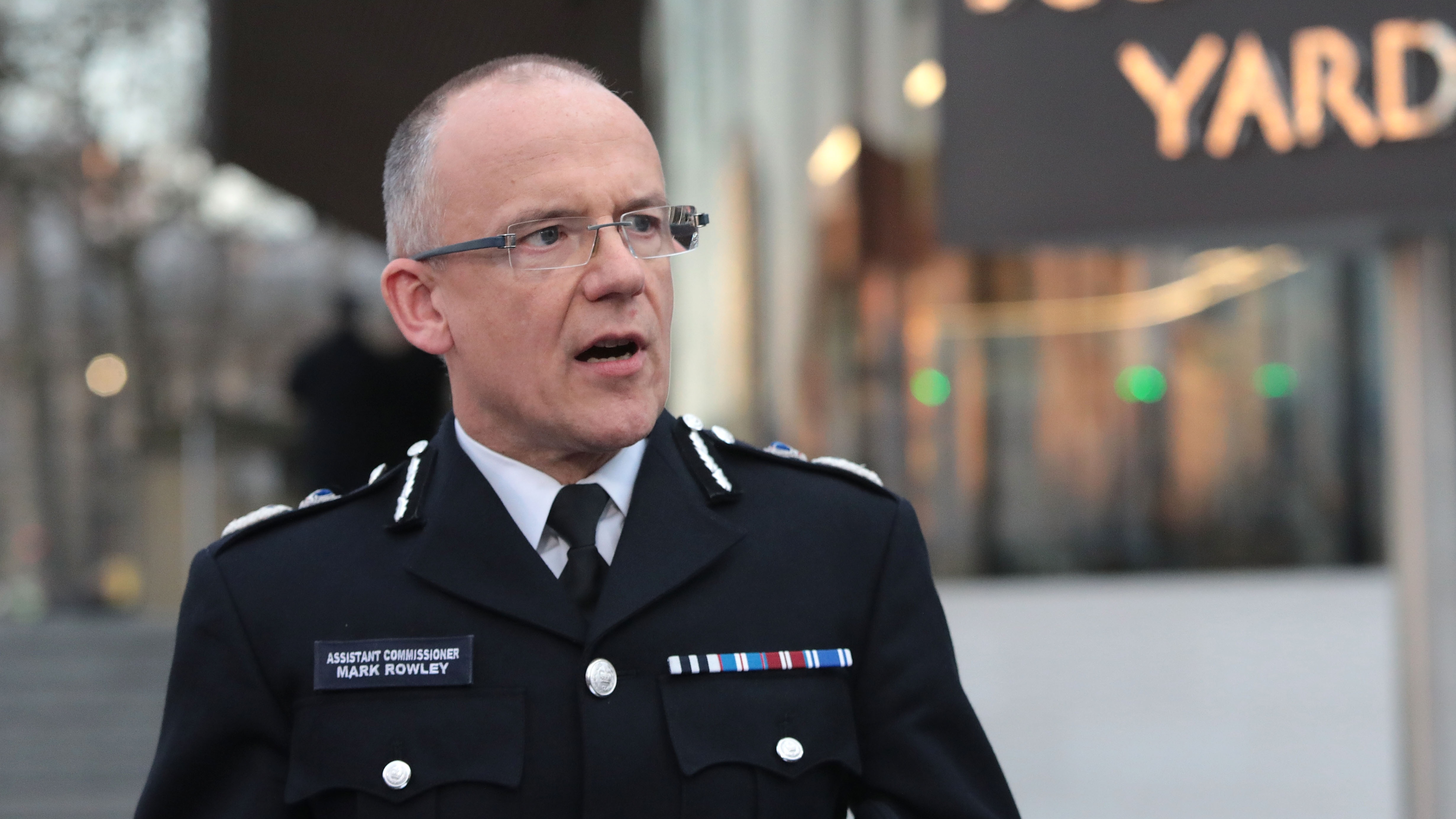
A free daily email with the biggest news stories of the day – and the best features from TheWeek.com
You are now subscribed
Your newsletter sign-up was successful
The Metropolitan Police commissioner has admitted that some officers are “treating women appallingly” after an interim report condemned the behaviour of hundreds of London-based officers as well as the force’s systems of redress.
Mark Rowley replaced Cressida Dick in July as commissioner at Scotland Yard following a series of controversies and scandals, including the murder of Sarah Everard, the strip search of Child Q, and findings of misconduct at Charing Cross Police Station.
An independent review of standards at the force was commissioned by Dick in the aftermath of the rape, kidnap and murder of Everard by serving Met PC Wayne Couzens. Baroness Casey, who is leading the review, published her interim report today.
The Week
Escape your echo chamber. Get the facts behind the news, plus analysis from multiple perspectives.

Sign up for The Week's Free Newsletters
From our morning news briefing to a weekly Good News Newsletter, get the best of The Week delivered directly to your inbox.
From our morning news briefing to a weekly Good News Newsletter, get the best of The Week delivered directly to your inbox.
Who is Mark Rowley?
Born in Birmingham in 1964, Rowley attended Handsworth Grammar School before studying mathematics at Cambridge, where he rowed for the St Catharine’s College 1st VIII. “But even before he went to Cambridge he knew he wanted to be a police officer,” said the BBC’s home affairs correspondent Daniel Sandford.
Rowley was turned down by the Metropolitan Police, however, owing to “poor eyesight”, and instead “joined his local force, West Midlands Police, in 1987”, Sandford continued. In 1989, while “still a probationer, he was beaten unconscious and had his nose broken while responding to a pub fight”.
Rowley climbed “through the ranks” in his own profession, after “pioneering some innovative ideas to tackle the 1990s burglary epidemic as a young detective”, before joining the National Criminal Intelligence Service, a forerunner to the National Crime Agency.
In 2011, he joined the Met as an assistant commissioner, and led the response to the riots sparked by the police shooting of Mark Duggan.
A free daily email with the biggest news stories of the day – and the best features from TheWeek.com
He was appointed head of counterterrorism at the force in 2014, as the UK faced the threat of Islamic State “and its ability to attract young Britons to its campaign of violence”, along with “a rise in the extreme far-right”, said The Guardian’s police correspondent Vikram Dodd.
Rowley was “the man who had to steady the nation’s nerves” during multiple terrorist attacks in London and Manchester in 2017, said the BBC’s Sandford.
The then counterterrorism chief applied for the role of Met commissioner that same year, but lost out to Cressida Dick. He retired from policing in 2018, before returning to take up his new role.
Rowley is now encountering “the biggest series of challenges any commissioner in modern times has faced”, said Dodd, after the Met was placed in special measures in June by the policing inspectorate, “for the first time in its history”.
‘Systemic racism and misogyny’
Published today, Casey’s interim report found “systemic” racism and misogyny, with allegations of sexual misconduct or discrimination less likely to result in a case to answer than other claims.
The review team “talked to officers who said they had observed colleagues who had displayed shocking behaviour but had no confidence in the force’s internal misconduct system to tackle it”, reported Police Oracle.
The report gave an example of one serving officer who had 11 misconduct notices for allegations “involving abuse, sexual harassment and assault, fraud, improper disclosure of information and distribution of an explicit image of himself”.
In a written response to Casey, Rowley said he was “appalled” by the extent of the findings she exposed and said “the public would be shocked that we do not have the final say when dismissing those who are guilty of gross misconduct”. He has accepted the findings in full and asked the Home Office to consider changing the regulations to give more power to the senior management team of the force.
He told journalists “We currently sack a bit less than one person a week – that’s clearly massively under engineered. There must be hundreds who shouldn’t be here.”
Asked on LBC whether he could look presenter Nick Ferrari in the eye and “say there’s not another Wayne Couzens in the force at the moment”, Rowley replied: “I can’t look you in the eye and say that we haven’t got officers who are treating women appallingly. Absolutely not.”
Casey found that “the leadership of the Met has for years ignored the need to get rid of the bad, corrupt, dangerous officers and that has put their families, their fellow officers and the people they serve - the public - all at risk”, said the BBC’s special correspondent Lucy Manning.
“And this isn’t her last word. She has much more to expose about the Met, its officers and its way of working when she delivers her final report.”
The 100-day plan to ‘turn the force around’
The police shooting last month of a 24-year-old unarmed black man, Chris Kaba, has also sparked street protests in the capital. The Independent Office for Police Conduct has opened a homicide inquiry into the death, and the Met officer who shot Kaba dead has been suspended from duty.
The Guardian reported that Rowley’s arrival marks the “launch of a 100-day plan to turn Britain’s biggest force around”. He is seeking to “lift public confidence” in the force by “increasing the proportion of crimes the Met solves and boosting the number of officers in local neighbourhoods to build relations”, the paper said.
Rowley reiterated his commitment to reforming the Met when he took up the role, pledging to “begin the journey of reform to renew policing by consent”.
-
 The ‘ravenous’ demand for Cornish minerals
The ‘ravenous’ demand for Cornish mineralsUnder the Radar Growing need for critical minerals to power tech has intensified ‘appetite’ for lithium, which could be a ‘huge boon’ for local economy
-
 Why are election experts taking Trump’s midterm threats seriously?
Why are election experts taking Trump’s midterm threats seriously?IN THE SPOTLIGHT As the president muses about polling place deployments and a centralized electoral system aimed at one-party control, lawmakers are taking this administration at its word
-
 ‘Restaurateurs have become millionaires’
‘Restaurateurs have become millionaires’Instant Opinion Opinion, comment and editorials of the day
-
 How the ‘British FBI’ will work
How the ‘British FBI’ will workThe Explainer New National Police Service to focus on fighting terrorism, fraud and organised crime, freeing up local forces to tackle everyday offences
-
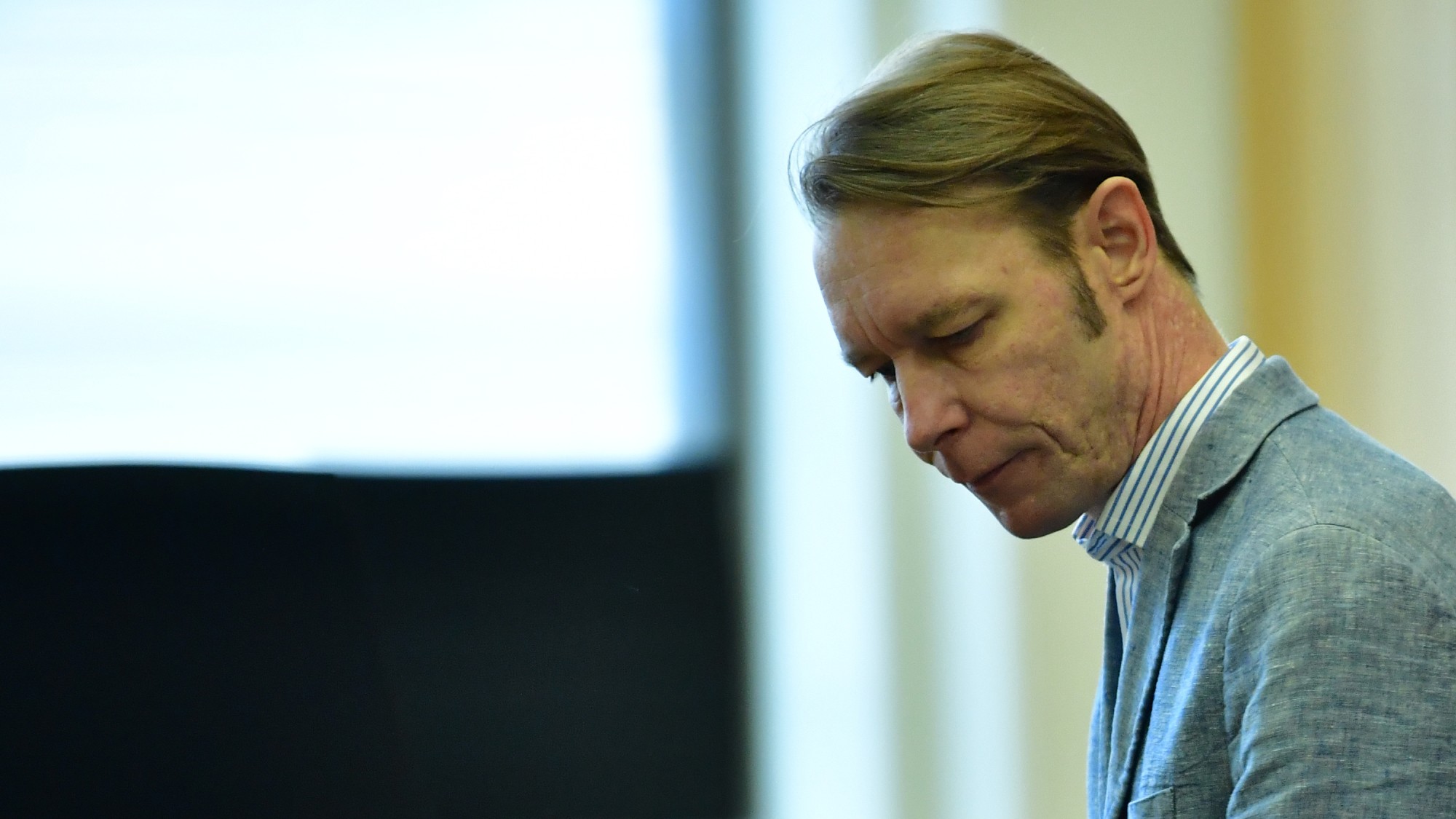 Christian Brückner: why prime suspect in Madeleine McCann case can refuse Met interview
Christian Brückner: why prime suspect in Madeleine McCann case can refuse Met interviewThe Explainer International letter of request rejected by 49-year-old convicted rapist as he prepares to walk free
-
 What to do if your phone is stolen
What to do if your phone is stolenThe Explainer An average of 180 phones is stolen every day in London, the 'phone-snatching capital of Europe'
-
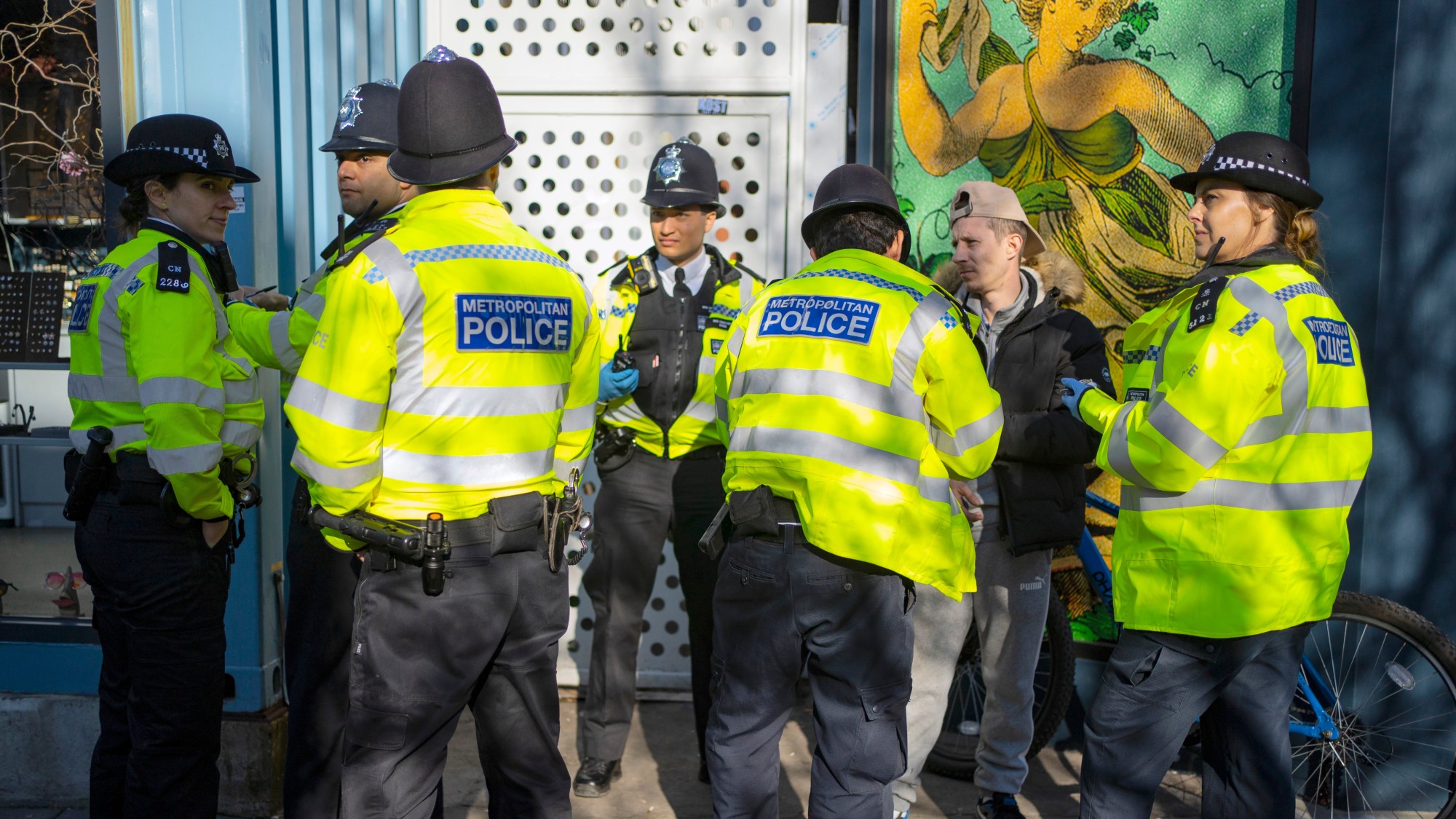 The Met police's stop and search overhaul
The Met police's stop and search overhaulThe Explainer More than 8,500 Londoners have helped put together a new charter for the controversial practice
-
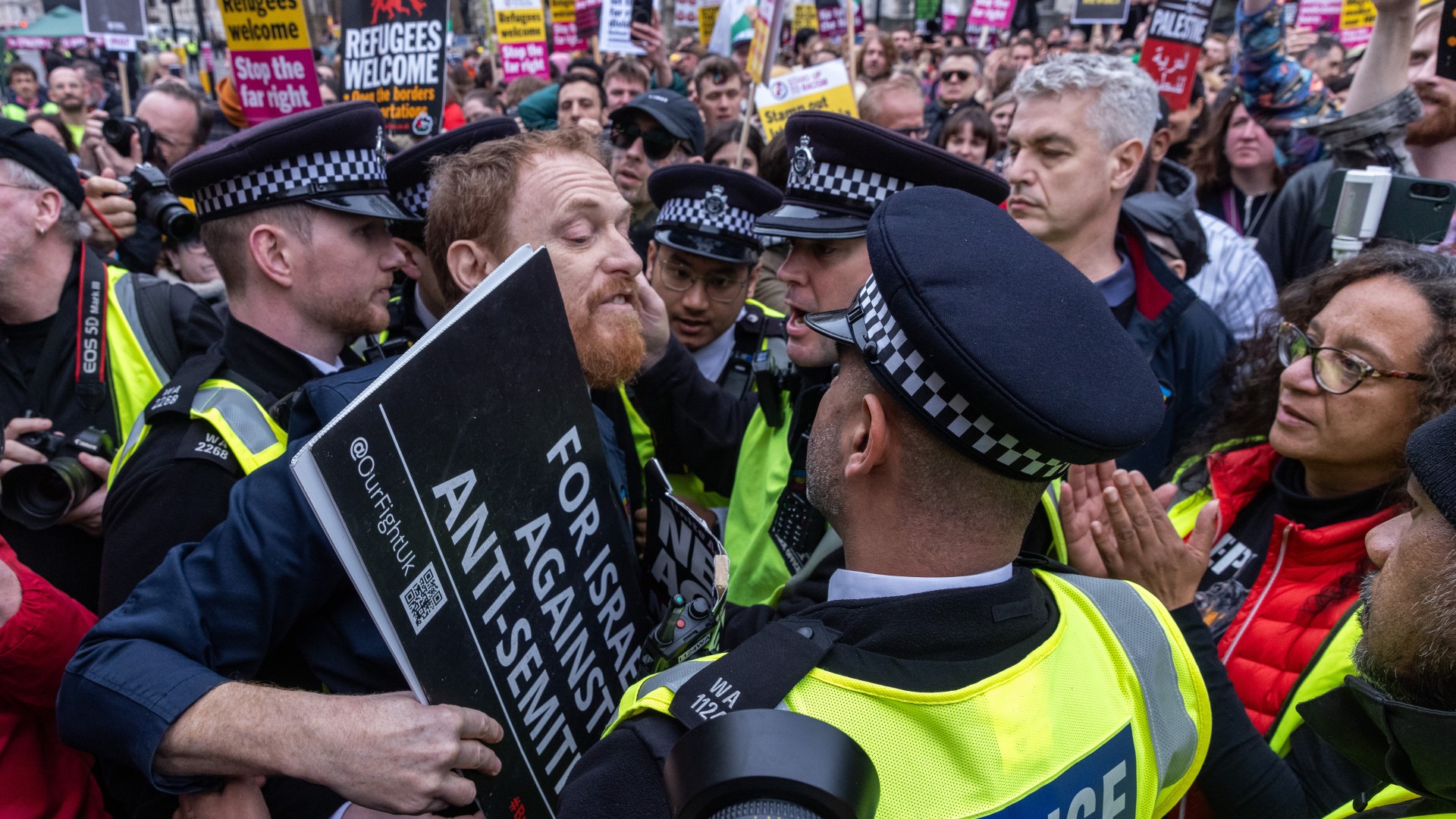 Scotland Yard, Gaza and the politics of policing protests
Scotland Yard, Gaza and the politics of policing protestsTalking Point Met Police accused of 'two-tier policing' by former home secretary as new footage emerges of latest flashpoint
-
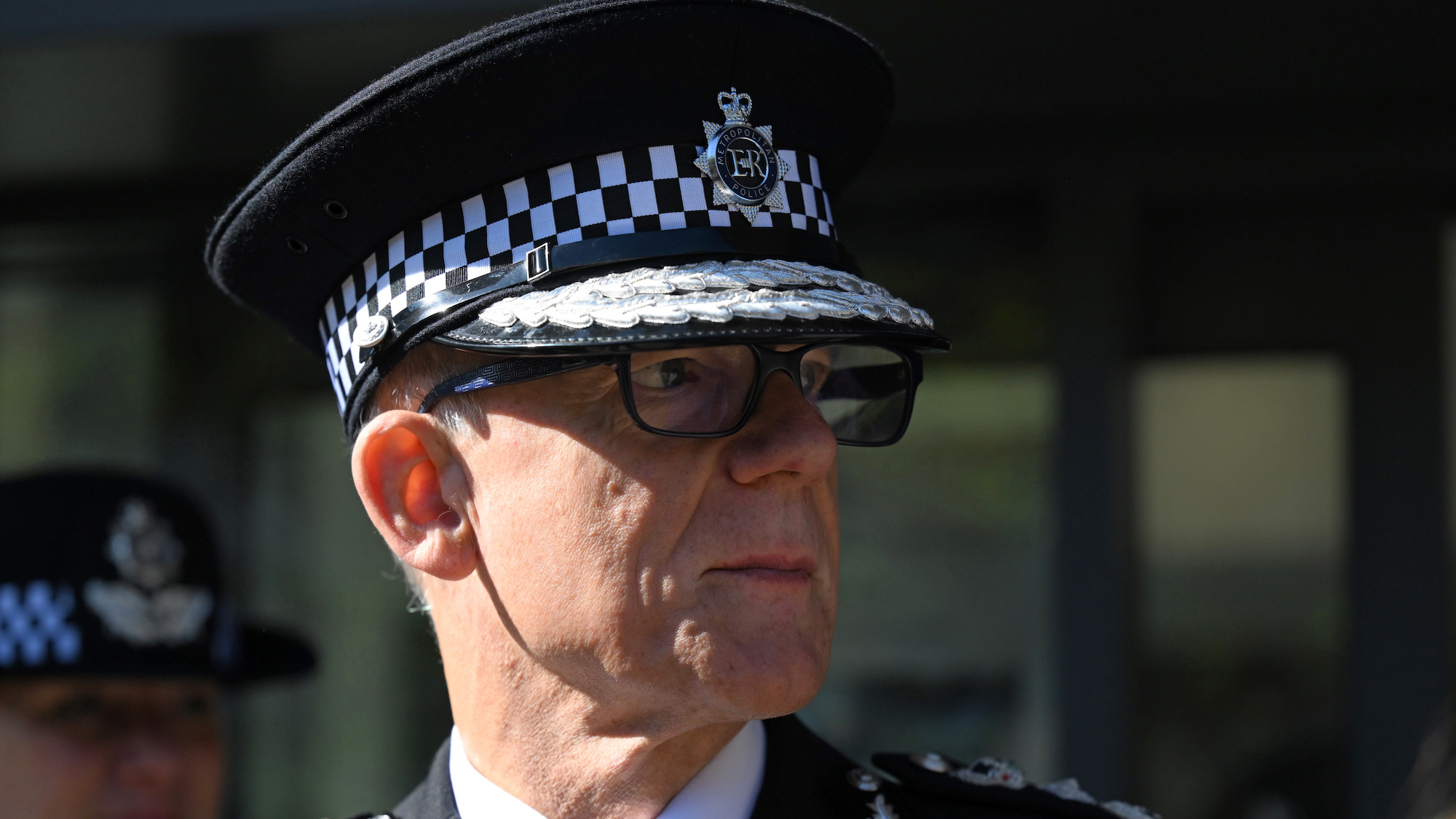 Can the Met Police heal its relationship with the Black community?
Can the Met Police heal its relationship with the Black community?In depth Police chiefs accused of not doing enough to address reported institutional racism
-
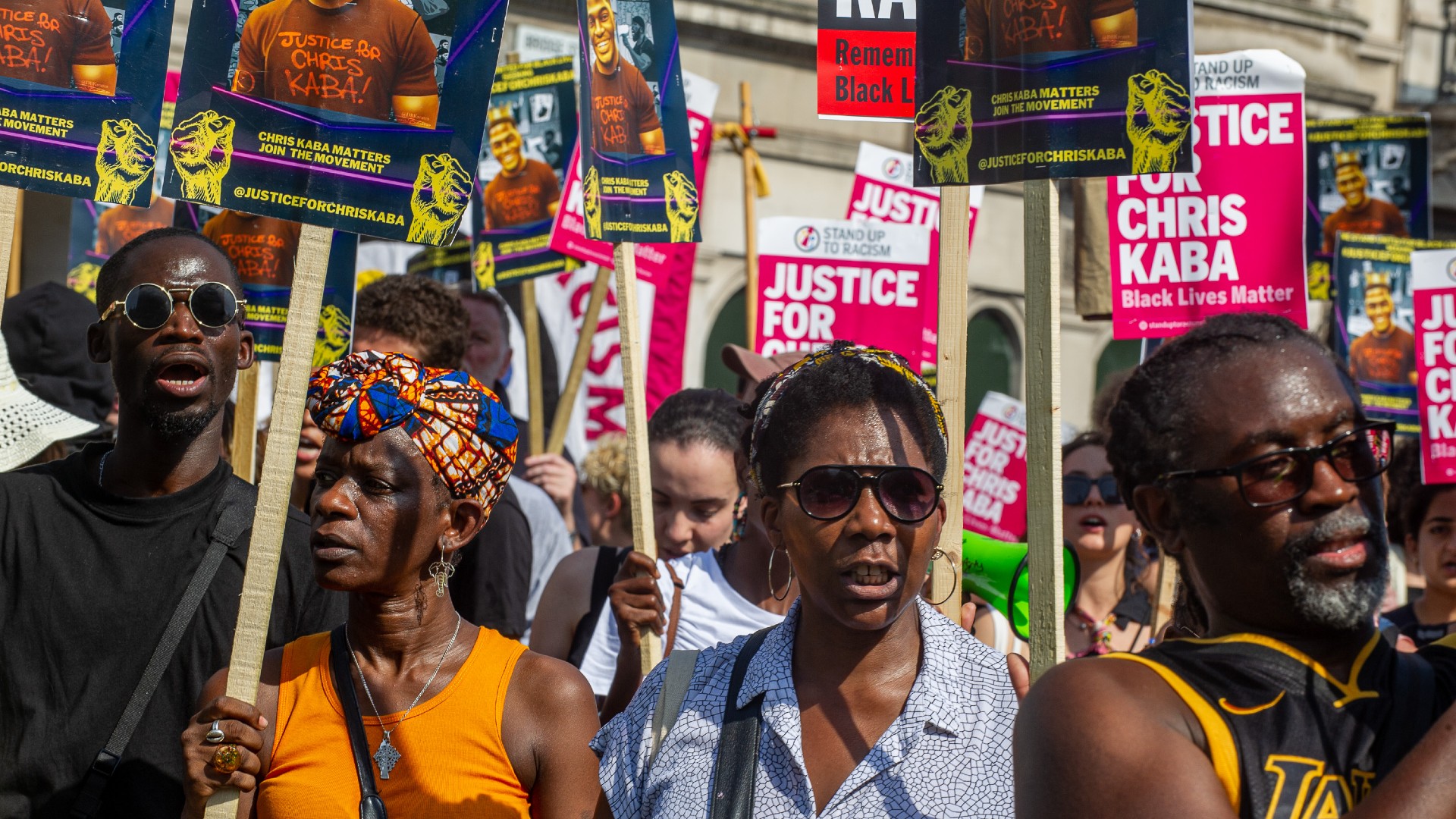 Why police are downing firearms after the Chris Kaba murder charge
Why police are downing firearms after the Chris Kaba murder chargeThe Explainer Army drafted in after scores of armed Met officers 'revolt' over charging of colleague
-
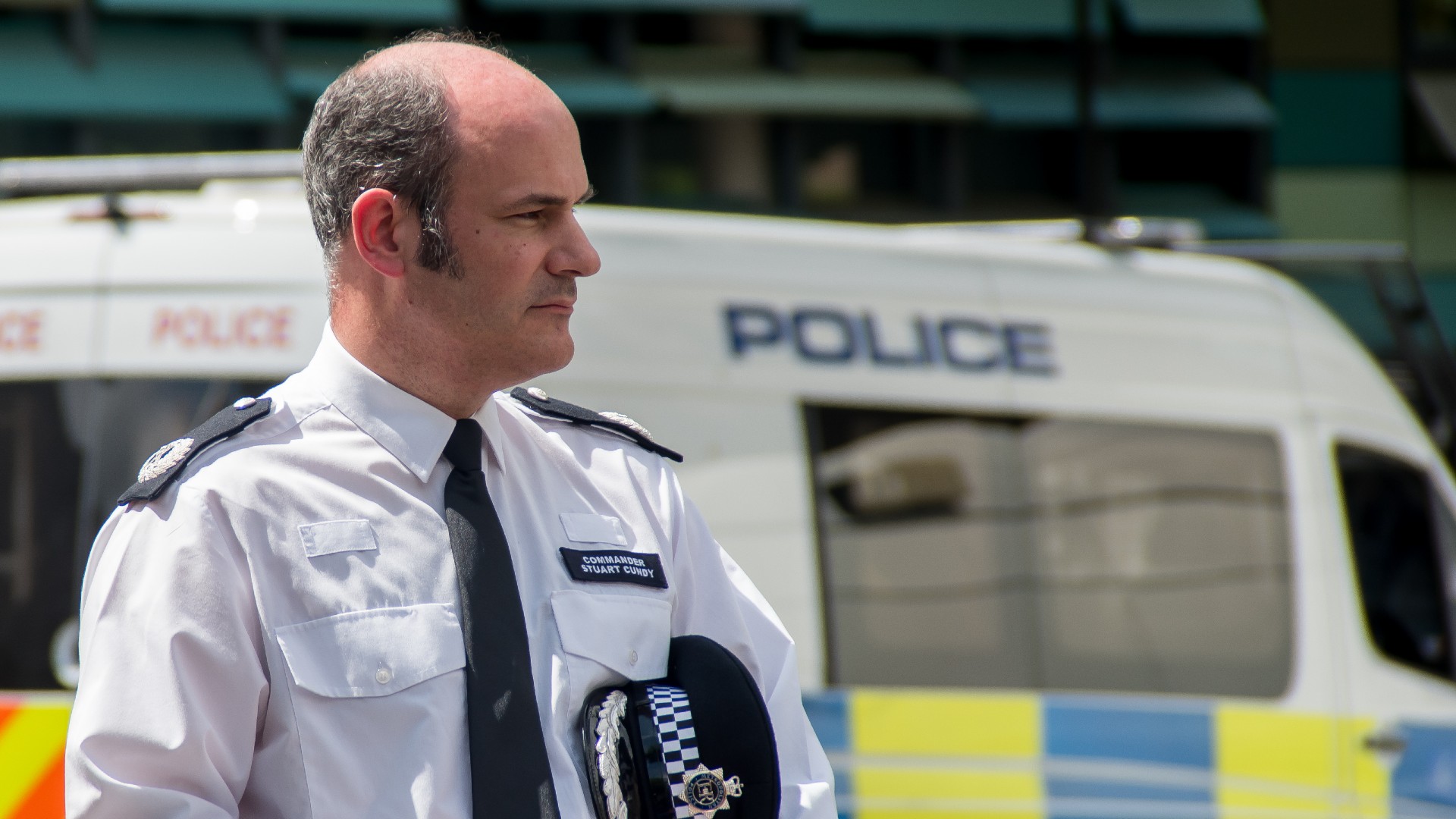 Met Police clean-up: more than 1,000 officers suspended or on restricted duties
Met Police clean-up: more than 1,000 officers suspended or on restricted duties'Eye-watering' figures show scale of challenge to restore public trust